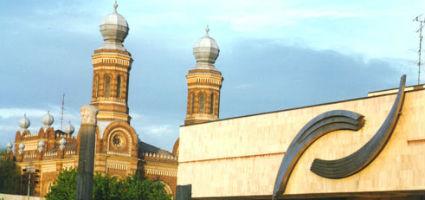2025. November 15. Saturday
Szombathely Gallery - Szombathely
 |
Address: 9700, Szombathely Rákóczi F. utca 12.
Phone number: (94) 508-800
E-mail: keptar@int.szombathely.hu
Opening hours: Wed-Sun 10-18
|
Museum tickets, service costs:
|
Ticket for adults
|
1000 HUF
|
|
|
Ticket for students
|
500 HUF
|
|
|
Ticket for pensioners
|
500 HUF
|
The new exhibition considers the collection itself, its creation, and the reason of its creation in different political situations. The other layer of our research is the permanent exhibition held formerly. We are in search of the coincidence and slips between the time of collecting and displaying the material.
It becomes clear that the scientific preparation of the exhibition and its fulfillment is a kind of self reflection which makes it impossible to measure ourselves and see how conscious we were, how we were influenced by the expectations, or provoked it ourselves.
Thematic Groups:
The 50's: Artworks brought in the Museum from castles at the beginning of the 20th century.
60's collecting Socio-Real and local material. Bases of the Derkovits, Dési collection,
70's: Supporting the Hungarian progression. The tradition of Szentendre, contemporary avant-garde painters at the end of the century, presents accepted happily or as obligatory,
80's: unbroken development, acquiring quality material,
90's, after 2000: The material sources lessen, the collecting of the material is limited to a few quality works.
It becomes clear that the scientific preparation of the exhibition and its fulfillment is a kind of self reflection which makes it impossible to measure ourselves and see how conscious we were, how we were influenced by the expectations, or provoked it ourselves.
Thematic Groups:
The 50's: Artworks brought in the Museum from castles at the beginning of the 20th century.
60's collecting Socio-Real and local material. Bases of the Derkovits, Dési collection,
70's: Supporting the Hungarian progression. The tradition of Szentendre, contemporary avant-garde painters at the end of the century, presents accepted happily or as obligatory,
80's: unbroken development, acquiring quality material,
90's, after 2000: The material sources lessen, the collecting of the material is limited to a few quality works.